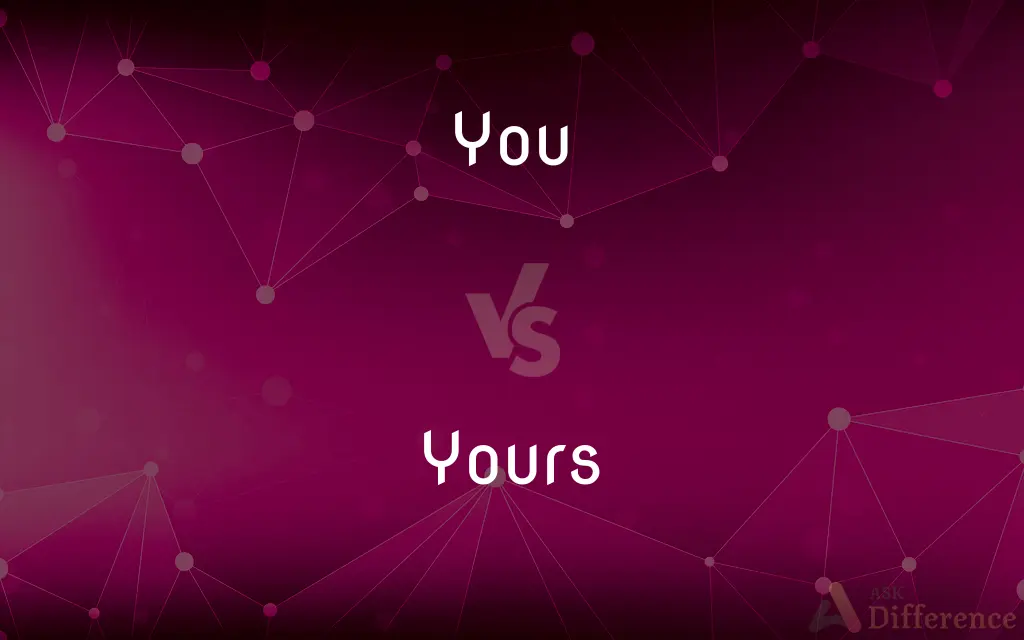You vs. Yours — What's the Difference?

Difference Between You and Yours
ADVERTISEMENT
Compare with Definitions
You
In Modern English, you is the second-person pronoun. It is grammatically plural, and was historically used only for the dative case, but in most modern dialects is used for all cases and numbers.
Yours
That which belongs to you (singular); the possessive second-person singular pronoun used without a following noun.
If this edit is mine, the other must be yours.
Their encyclopedia is good, but yours is even better.
It’s all yours.
You
Used to refer to the person or people that the speaker is addressing
Are you listening?
I love you
Yours
That which belongs to you (plural); the possessive second-person plural pronoun used without a following noun.
You
Used to refer to any person in general
After a while, you get used to it
ADVERTISEMENT
Yours
Written at the end of a letter, before the signature.
Yours sincerely,
Yours faithfully,
Sincerely yours,
You
(object pronoun) The people spoken, or written to, as an object.
Both of you should get ready now.
Yours
See the Note under Your.
You
(To) yourselves, (to) yourself.
You
(object pronoun) The person spoken to or written to, as an object. (Replacing thee; originally as a mark of respect.)
You
(subject pronoun) The people spoken to or written to, as a subject. (Replacing ye.)
You are all supposed to do as I tell you.
You
(subject pronoun) The person spoken to or written to, as a subject. (Originally as a mark of respect.)
You
(indefinite personal pronoun) Anyone, one; an unspecified individual or group of individuals (as subject or object).
You
The individual or group spoken or written to.
Have you gentlemen come to see the lady who fell backwards off a bus?
You
Used before epithets, describing the person being addressed, for emphasis.
You idiot!
You
(transitive) To address (a person) using the pronoun you (in the past, especially to use you rather than thou, when you was considered more formal).
You
The pronoun of the second person, in the nominative, dative, and objective case, indicating the person or persons addressed. See the Note under Ye.
Ye go to Canterbury; God you speed.
Good sir, I do in friendship counsel youTo leave this place.
In vain you tell your parting loverYou wish fair winds may waft him over.
Share Your Discovery

Previous Comparison
Ingathering vs. Gathering
Next Comparison
Discontentment vs. Discontent














































